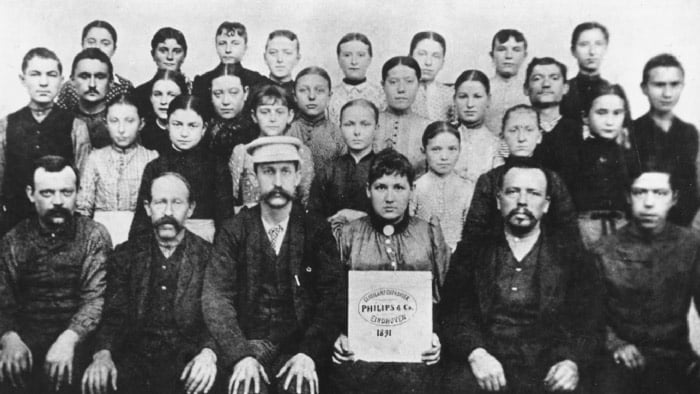Philips Company History
When reflecting on the evolution of technology and innovation, Philips stands out as a pioneer in progress and adaptability. Founded over a century ago, Philips has not only been a major player in the electronics industry but has also significantly influenced how we interact with technology. Uncover the advanced capabilities of the Philips 5500 LatteGo review
Established in 1891 by Gerard Philips and his father Frederik in Eindhoven, Netherlands, Philips initially focused on manufacturing carbon-filament lamps. This early venture laid the foundation for a global powerhouse. Despite challenges like financial difficulties and intense competition, their commitment to quality enabled them to steadily improve their products, paving the way for their future success. Get a closer look at the features of the Philips 5400 LatteGo review
Early Success and Expansion
By the early 20th century, Philips had become one of Europe’s leading light bulb manufacturers. Their success was not solely based on large-scale production but also on their dedication to innovation. In 1914, Philips established the Philips Research Laboratory, or NatLab, a critical element in their strategy. This research facility fostered a culture of development that fueled the company's growth for decades. Compare these two machines side by side in the Philips LatteGo 5400 vs 4300 review
During the 1920s and 1930s, Philips expanded into the radio industry, recognizing its enormous potential. In 1927, they began producing radios, and by 1932, they had sold over a million units. This demonstrated their keen ability to anticipate consumer needs and capitalize on emerging market trends. Discover the differences among these models in the Philips 3200 vs 4300 vs 5400 review

Challenges and Resilience During WWII
World War II posed significant challenges for Philips, with their operations severely disrupted. Yet, their resilience was evident. The company relocated key personnel and continued essential research in secret. Remarkably, during the war, Philips contributed to the advancement of radar technology and other critical innovations, showcasing their resourcefulness even during turbulent times. Learn how these two models compare in the Philips 3200 vs 4300 review
Post-War Innovations and Global Influence
The post-war era was a period of rebuilding and adaptation for Philips. The 1950s marked a turning point in their innovation efforts. In 1963, Philips introduced the compact audio cassette, revolutionizing how people listened to and recorded music. This portable medium became a global standard, influencing music consumption for decades. See what sets these models apart in the Philips 3200 vs 5400 review
Philips' collaborative approach also played a vital role in their success. In the late 1970s, they partnered with Sony to develop the compact disc (CD). This collaboration not only transformed the music industry by introducing digital audio but also demonstrated Philips' commitment to technological advancement. The success of the CD paved the way for future digital formats and highlighted the importance of international cooperation in driving innovation. Get a detailed review of the Philips LatteGo 5400 review
Diversification and Technological Prowess
In the latter half of the 20th century, Philips diversified its product offerings. From consumer electronics to home entertainment, they left a significant mark globally. Notably, they contributed to the creation of the VHS format and the development of DVDs. In the 1990s, Philips introduced Ambilight TVs, enhancing the viewing experience by projecting ambient light that matched the on-screen content. Discover the compact and efficient design of the Philips 3200 LatteGo review
Philips’ foresight extended beyond entertainment. In the 1980s, they began investing heavily in healthcare solutions, acquiring several medical technology companies. This expansion positioned them as a leader in health technology, with a portfolio that includes medical imaging, patient monitoring, and health informatics. Dive into the advanced features of the Philips 4300 LatteGo review

Strategic Shifts and Focus on Health
Philips has demonstrated remarkable adaptability in responding to shifting market dynamics. In recent years, they have shifted their focus from traditional consumer electronics to health technology and lighting solutions. This strategic shift became more pronounced in 2016 when Philips Lighting was spun off into a separate company, Signify. This move allowed Royal Philips to focus on healthcare technology, aligning with global trends toward health, wellness, and sustainability.
Commitment to Sustainability and Corporate Responsibility
Philips has been steadfast in its commitment to sustainability. The company has set ambitious goals to reduce its environmental footprint, including becoming carbon-neutral across its operations. Their embrace of circular economy principles underscores their dedication to corporate responsibility and sustainable business practices.
Furthermore, Philips has integrated digital transformation into their business, incorporating artificial intelligence and data analytics into their products and services. Their focus on connected healthcare solutions positions them as a forward-thinking company, using technology to enhance patient care and well-being.
Conclusion
Philips’ history is a remarkable story of innovation, resilience, and transformation. From its humble beginnings in Eindhoven to becoming a global leader in health technology, Philips exemplifies how a company can evolve while staying true to its mission of improving lives through meaningful innovation. Their influence on industries ranging from electronics to healthcare is profound.
As the technological landscape continues to evolve, Philips’ commitment to pioneering solutions and societal well-being suggests they will continue to shape the future with the same trailblazing spirit that has defined their legacy.
